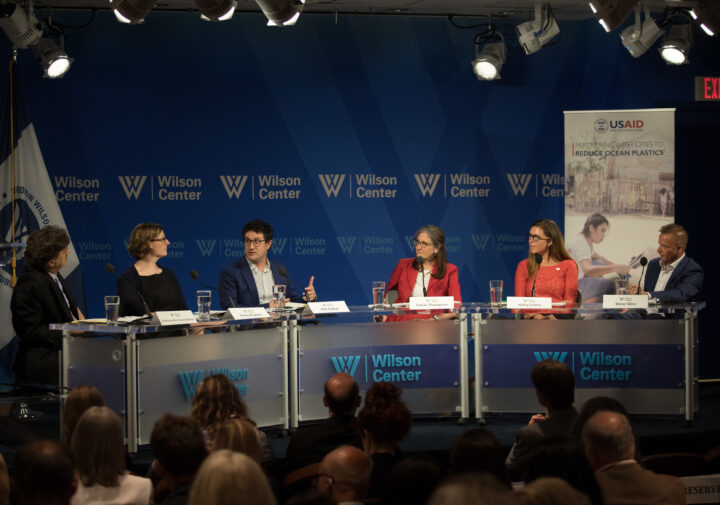With the world’s fourth largest population and second longest coastline across 18,000 islands, Indonesia is a key partner in addressing ocean plastic pollution. The Government of Indonesia has set forth ambitious goals to reduce marine plastic pollution by 70 percent by 2025. However, local governments often lack the funding needed to implement city-level solid waste management.
USAID has been working in partnership with the Government of Indonesia since 2018 through various global and bilateral programs, beginning with the Municipal Waste Recycling Program (MWRP). Through MWRP, USAID provided grants to seven local organizations, introducing innovative approaches to improving community-based solid waste management and recycling practices, focusing on strengthening the waste bank and community collection models.
Under the Save Our Seas Initiative, USAID’s Clean Cities, Blue Ocean (CCBO) worked closely with national and local government counterparts, communities, enterprises, and informal waste collectors in the cities of Semarang, Makassar, and Ambon to address plastic pollution and institutionalize several key program tools and guidelines. These tools included the Solid Waste Capacity Index for Local Government Assessment to strengthen Indonesia’s existing Solid Waste Management Performance Index tool, and the Private Sector Landscape Analysis to help strengthen the role of the private sector in solid waste management.
Through a partnership with impact investor Circulate Capital and Preventing Ocean Plastics Indonesia, USAID is also supporting recycling business in Indonesia. With assistance from USAID and a loan from Circulate Capital, Preventing Ocean Plastics Indonesia has established advanced collection and recycling infrastructure in the rapidly urbanizing cities of Semarang and Makassar to strengthen a supply chain model for recycled plastic. This collaboration has expanded collection and recycling infrastructure; engaged the local government to meet local development needs; generated high-quality, traceable recycled plastic; mobilized and empowered women, youth, and informal waste collectors; and promoted education, engagement, and behavior change for individuals and businesses to strengthen solid waste management practices.
Current Programs
SELARAS (2023-2028)
USAID’s Sustainable Municipal Solid Waste Management and Partnership is a five-year, $24.7 million program to reduce land-based sources of ocean plastic pollution and methane emissions by promoting sustainable and integrated solid waste management and recycling systems in cities. The program works with the private sector, civil society, and local and national government to strengthen governance, boost the market for local waste collection and recycling businesses, and improve understanding of the 3Rs (reduce, reuse, recycle) in Indonesian communities. USAID SELARAS is implemented by DAI.
CIRCLE Alliance: Catalyzing Inclusive, Resilient, and Circular Local Economies (2024-2029)
The CIRCLE Alliance is a new $21 million public-private collaboration to reduce plastic use and tackle plastic waste. Founded by Unilever, USAID, and EY, it aims to support women’s economic empowerment, improve livelihoods, and accelerate the development of circular economies through direct support to social enterprises and policies like Extended Producer Responsibility. CIRCLE is implemented by Resonance.
Clean Cities Blue Ocean (2019-2025)
USAID’s Clean Cities, Blue Ocean is a six-year, $67 million global program working in more than 25 cities across ten countries of Asia, Latin America, and Pacific and Caribbean islands to target ocean plastics directly at their source. CCBO partners with national and local governments, members of the private sector, NGOs, and local women’s and youth organizations to improve solid waste management systems, build capacity and commitment for the 3Rs, and promote sustainable social and behavior change. Trainings and learning produced under CCBO are publicly available through a self-directed solid waste management online university that has already trained waste professionals from more than 100 countries. CCBO is implemented by Tetra Tech ARD, in association with The Manoff Group and International City/County Management Association.
Circulate Capital Partnership (2019 – Present)
In June 2019, USAID launched an agreement leveraging more than $100 million in a private-sector investment strategy managed by Circulate Capital and funded by multinational companies, including PepsiCo, Procter & Gamble, Dow, Danone, Unilever, and Coca-Cola. USAID provides a $35 million, 50 percent loan-portfolio guarantee through the U.S. International Development Finance Corporation, which is used to de-risk private capital investment in the recycling value chain in South and Southeast Asia.
Past Programs
Municipal Waste Recycling Program (2016-2021)
Launched in 2016, the Municipal Waste Recycling Program was USAID’s first formal response to the urgent challenge of plastic pollution in developing countries. The program was implemented in four countries that are among the world’s top contributors of marine plastics pollution: Indonesia, the Philippines, Sri Lanka, and Vietnam. Through grants and technical assistance for promising solid waste management and waste recycling efforts in urban and peri-urban areas, MWRP diverted 20,600 metric tons of plastic waste from the ocean, trained 36,000 women in solid waste management and recycling, and supported over 60 new and improved laws and regulations.
Projects
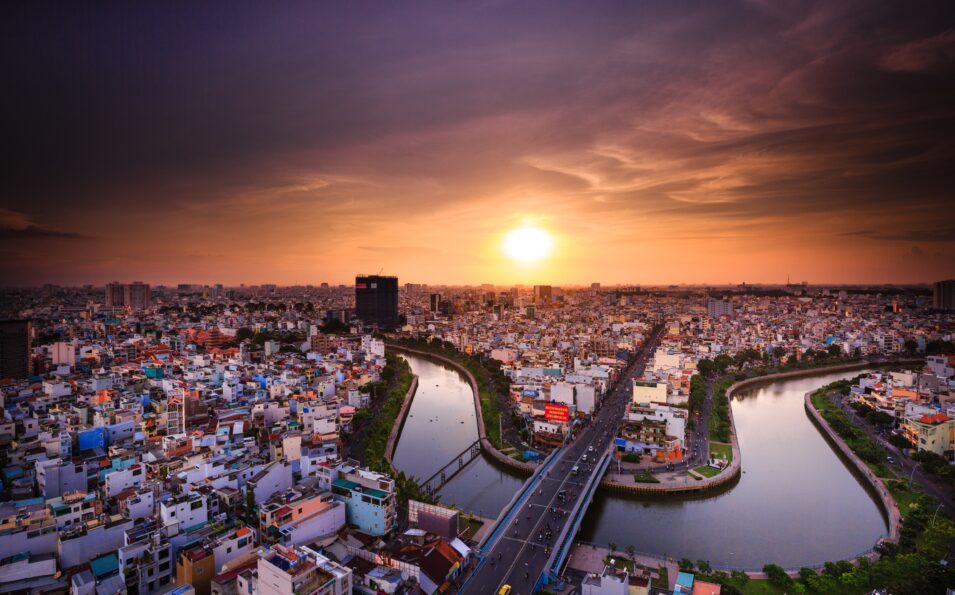
Clean Cities, Blue Ocean
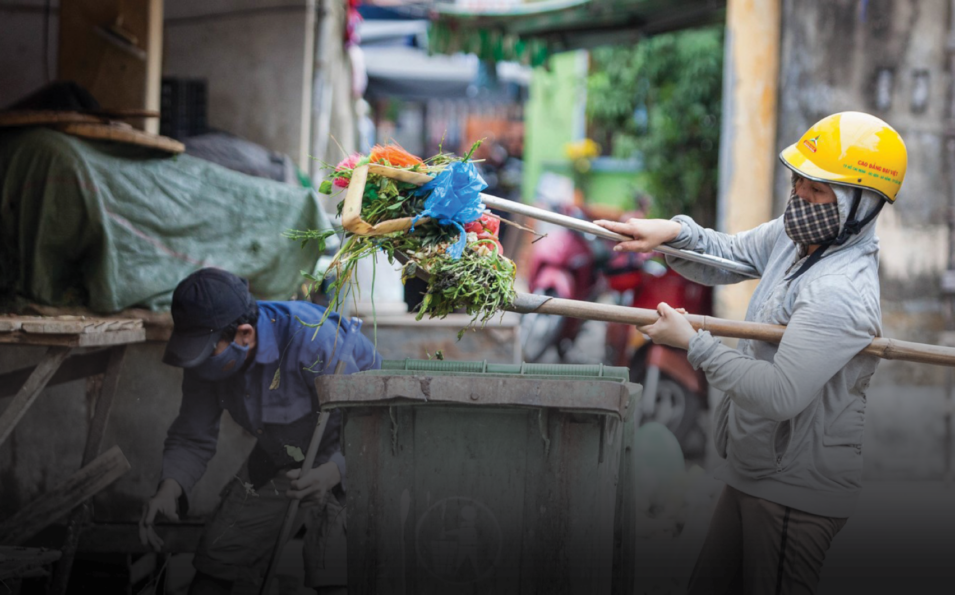
Municipal Waste Recycling Program
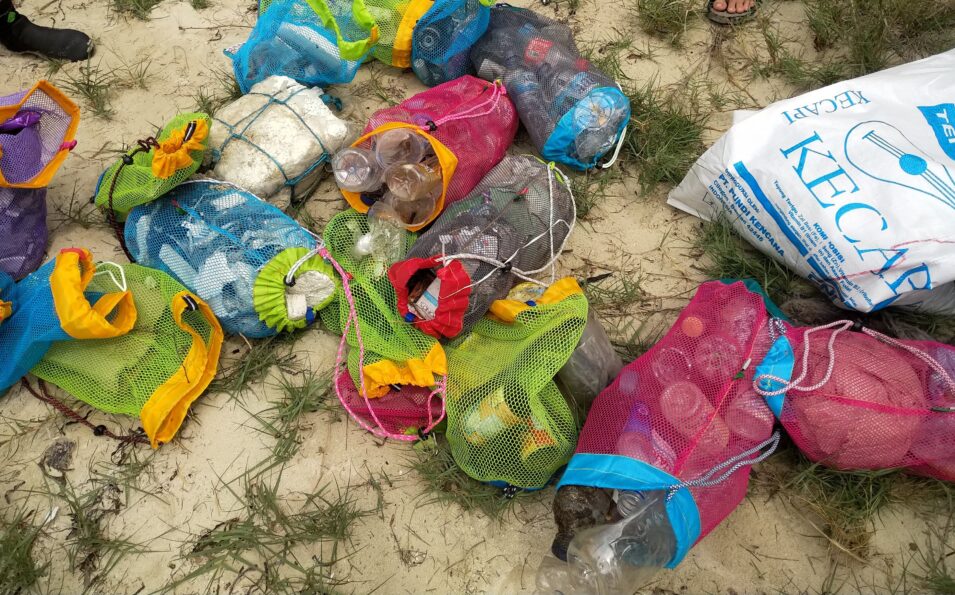
Circulate Capital Partnership
Key Resources
View all ResourcesMunicipal Waste Recycling Program (MWRP) – Indonesia Country Profile
MRWP Indonesia: Save Our Small Islands
MWRP Indonesia: Strengthening Local Government Coordination and Capacity in Best Waste Management Practices in South Sulawesi Province
MWRP Indonesia: Tech for Ocean Plastic Prevention and Expanded Recycling (T.O.P.P.E.R.)
Insights & Updates
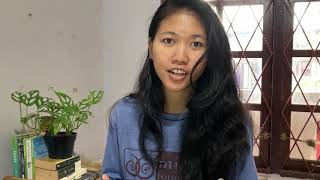
USAID MWRP Video Updates: Misool Foundation, Indonesia
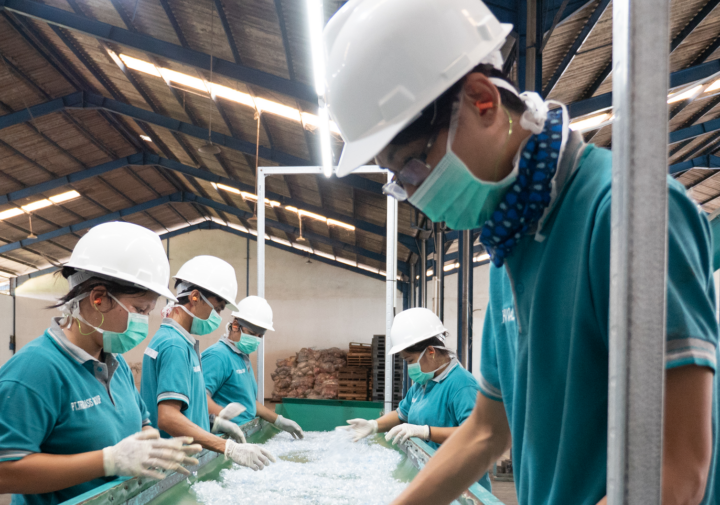
USAID Partner Circulate Capital Announces Inaugural Investments in India and Indonesia
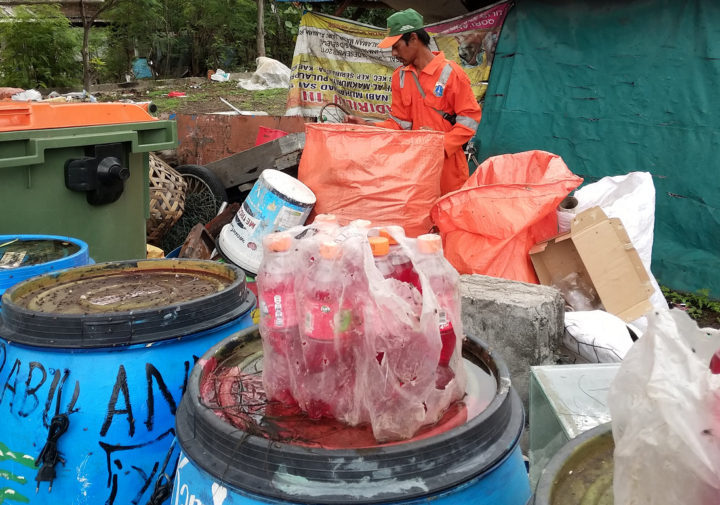
A Plastic Wrapped Life
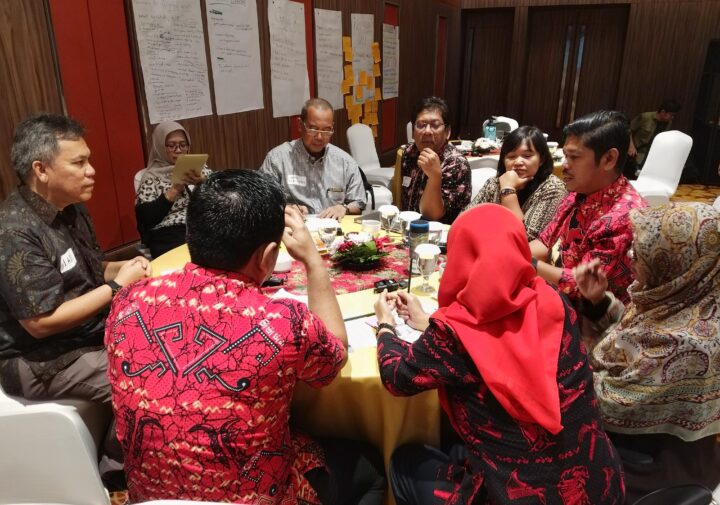
Collaboration in Indonesia to Combat Ocean Plastic
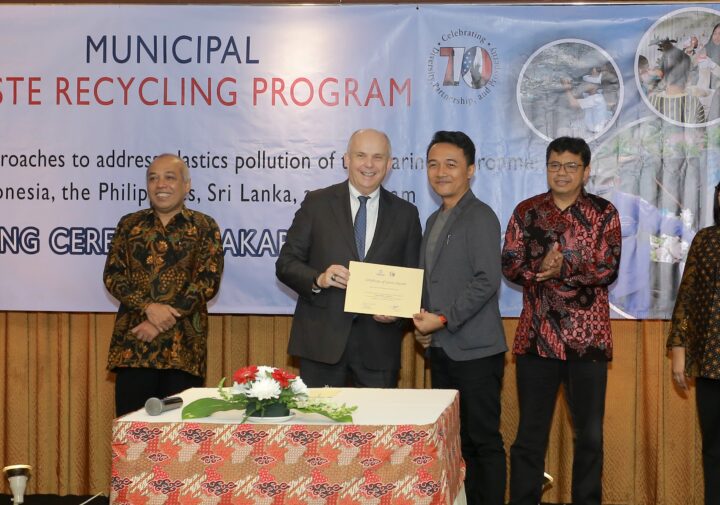
Indonesian Foundation Working to Reduce Ocean Plastic Pollution Wins Google.org Support
